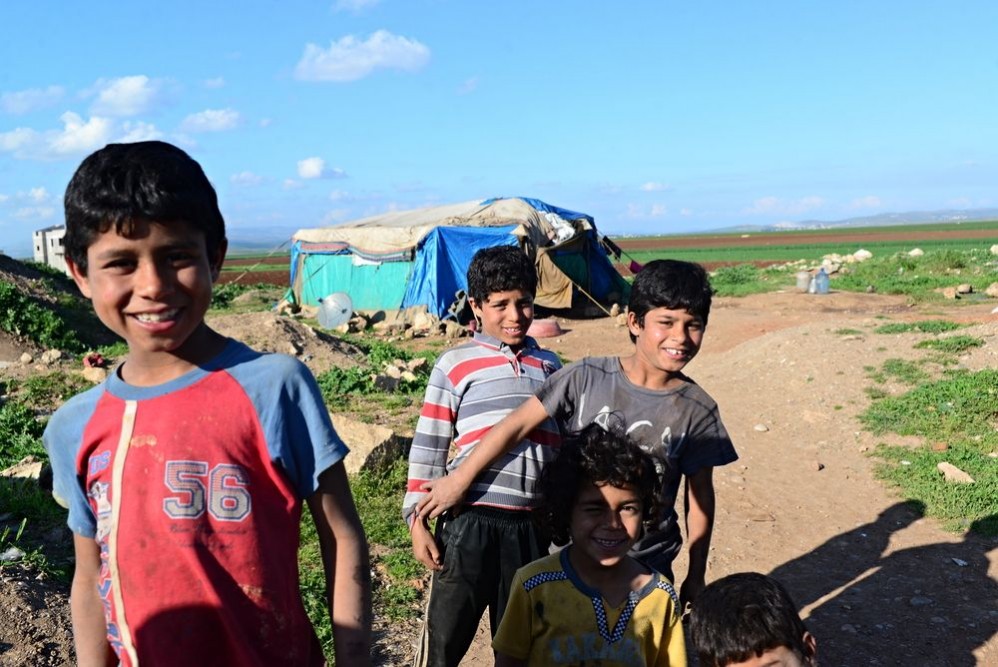
Shutterstock
‘We are not safe in Iraq while Daesh (ISIS) is in control. We have no future, no work, no belongings,’ says an Iraqi genocide survivor.
Amman, Jordan — On June 10, 2014, Batool* was in her classroom in Mosul, Iraq, preparing for the school week when she received word: Bad people—barbarians looking for Christians to kill—were coming. Batool immediately went home to pack up her life. As she prepared to leave her house, her career, and her education—she was midway through a PhD in biology—she knew she was likely saying a permanent farewell to the only home she had ever known.
She is an Assyrian Christian, which means the Islamic State (ISIS) and many other Iraqi Muslims perceived her as a non-believer and an ally of the West. Being Christian in Iraq means being a primary target of ISIS terrorism.
Assyrian Christians Flee Their Homes in Droves
Batool’s home city of Mosul stands on the ruins of the ancient city of Nineveh. Many will recall the biblical story of Jonah, whom God called to preach to the Assyrians in Nineveh. The ancient city was the capital of the Assyrian Empire, one of the great empires of biblical times, alongside the Egyptians and Babylonians. Since Assyria was Christianized in the first century AD, Mosul has been home to thousands of Assyrian Christians.
Assyrian Christians have long endured persecution for both their ethnicity and their faith: the Iraqi Assyrian population, for example, has dropped from 1.5 million in 2003 to approximately 200,000 today. From 1910 to 2016, the proportion of people in the Middle East identifying as Assyrian Christian dropped from 14 percent to 4 percent. Today the Assyrian diaspora exceeds 4 million.
Recent events have exacerbated the persecution, and Assyrian Christians continue to flee the Middle East in droves. ISIS occupied Mosul in June 2014, prompting a mass Assyrian exodus. By July, ISIS declared the city was Christian-free. For the first time in its Christian history, mass would not be celebrated in Mosul.
Even if American foreign policy were to change, it is not clear what its object should be, particularly for Assyrian Christians. Although all Assyrians yearn for a homeland in the Nineveh Plain, many differ in their vision of their families’ and peoples’ future.
Some Assyrians dream to return to the Nineveh Plains and have a restored, unified, and peaceful homeland. “I would love to return to the land of my mother and grandmother. I would love to raise my daughters and granddaughters in the place my people have lived for thousands of years,” muses Janna, a young Assyrian mother to three girls and a refugee living in Jordan.
Others Assyrians, scarred by the betrayal from many of their Muslim neighbors and the trauma of persecution in their homeland, instead hope for safety and security abroad. “I wish to return home, but it is not possible. Please pray for us,” asked Taghee, a woman who barely escaped Mosul the day ISIS attacked. “But also help us. We must leave (Amman, Jordan). Fast. We are not safe in Iraq while Daesh (ISIS) is in control. We have no future, no work, no belongings. Pray for us and help our applications for resettlement.”
Not Everyone Ignores this Humanitarian Disaster
Many Americans are convinced they have a duty to prevent Christianity from being extinguished in the Middle East, the cradle of its conception. Earlier this September, the Washington DC-based nonprofit In Defense of Christians (IDC) hosted its National Leadership Convention to “mobilize America for the Christians in the Middle East.” IDC seeks to preserve Christianity and Christian culture in the Middle East through grassroots mobilization, coalition-building, awareness-raising, and congressional resolutions. Other organizations, such as the Iraqi Christian Relief Council, raise funds to provide emergency humanitarian aid, prayers, and advocacy for Assyrian Christians in Iraq and other parts of the Middle East.
Other organizations encourage the United States play a more active role in preserving Assyrian Christians. One recent proposal advocates U.S. support for creating a new semi-independent Iraqi province on the Nineveh Plain to protect and resettle Assyrian Christians and other ethnic and religious minorities ISIS has recently displaced. A proposed congressional resolution aims to “support the Republic of Iraq and its people to recognize a province in the Nineveh Plain region, consistent with lawful expressions of self-determination by its indigenous peoples.”
Such efforts encourage Assyrian Christians like Batool. While there are inevitable challenges in helping Christians—and Yazidis and Shiites—who are vulnerable to persecution, these initiatives show that many in the West care about the plight of Batool and her people. Batool, at least, is hopeful: “Some days we are angry. Others we are at peace. Pray for our patience. God is in control.”